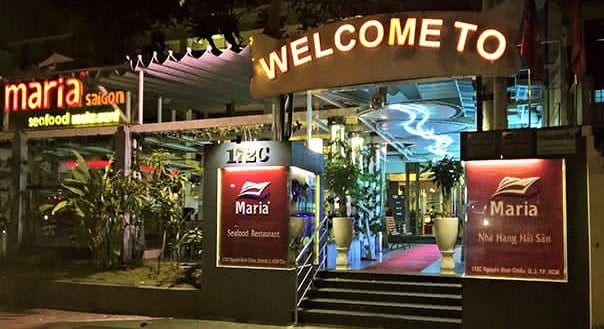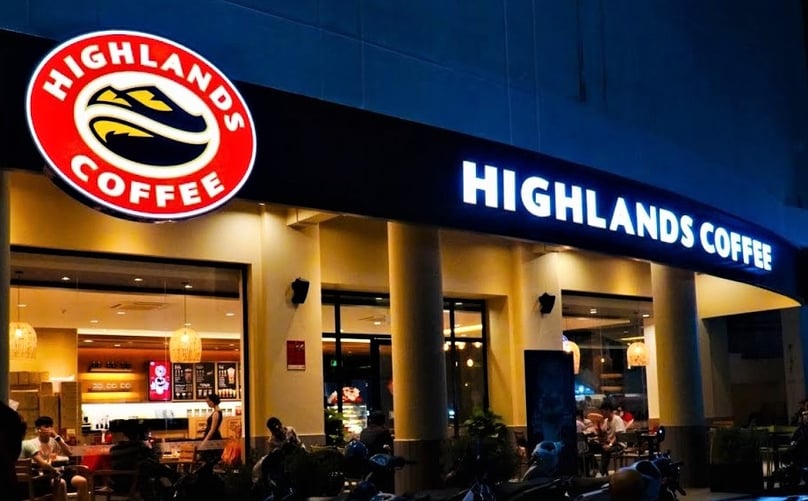Vietnam F&B chain industry sees mixed moves from investors
Investors in Vietnam's food and beverage (F&B) chains have been blowing hot and cold in recent months.
A Singaporean firm has completed the acquisition of major Ho Chi Minh City-based real estate developer Novaland’s F&B business (Nova F&B), a source from VinaCapital told The Investor on Monday. The person, who asked not to be named as the deal is private, said the Singaporean buyer’s name and the transaction’s value could not be revealed under the contract.
VinaCapital, the leading investment management firm in Vietnam, acted as the broker for the deal. VinaCapital’s chief investment officer Andy Ho told local media on Sunday that Singapore-headquartered IN Holdings, which is not the buyer, is now the new operator of Nova F&B. He added that his company is a shareholder of IN and has been in partnership with the holding company over the past four years.
Global investment giant Warburg Pincus led a consortium to invest $250 million in Novaland in May 2022 to start its partnership with the property developer, which is currently undergoing a comprehensive shake-up to focus on real estate as its core business, so its F&B business needs a new investor.
The Nova F&B chain has been renamed IN Dining. Vietnamese businesswoman Nguyen Thanh Ha Ngoc has been appointed as the legal representative and general director of IN Dining. She is CEO of HCMC-based IN Hospitality JSC, which operates large convention and event centers including GEM Center and White Palace in the southern economic hub.
The F&B business includes coffee chains, restaurants, clubs, and others, with several coffee shops in prime locations in downtown HCMC like PhinDeli, Co Ba Cafe, Mojo Boutique Coffee, and Saigon Casa. Its up-market restaurants include Marina Club, Dome Dining & Drinks, and Dynasty House, and franchises such as Jumbo Seafood, Crystal Jade Palace, Sushi Tei from Singapore, and Gloria Jean's Coffees from Australia.

A Maria seafood restaurant on Nguyen Dinh Chieu street, District 3, Ho Chi Minh City, southern Vietnam. Photo courtesy of the brand.
Sydney-based Gloria Jean's Coffees arrived in the Vietnamese market and quit in 2017, with its franchising business joining Novaland’s F&B arm. The reason behind the Australian firm’s exit was slower-than-expected chain expansion due to fierce competition in Vietnam’s unique café and street food culture.
World-famous New York Dessert Cafe (NYDC) was brought to Vietnam in 2009 by Singapore-based SUTL Group and opened a string of coffee shops in HCMC. Ambitiously, the franchise intended to open 20 stores in five years at a cost of roughly $300,000 each. In July 2016, the NYDC chain closed, leaving well before it realized those ambitious plans.
Early this January, Starbucks’ Vietnam general manager Patricia Marques told Vietnamese reporters the American coffee brand is set to open its 100th store in Vietnam in the second quarter of this year to add to its current 87 outlets.
The milestone of 100 shops aims to mark the brand’s 10-year presence after the first shop opened in Vietnam in early 2013, located at the five-star New World Saigon hotel in the heart of HCMC.
Six months have passed this year but the total number of Starbucks Vietnam outlets remains at 87.
As in the case of Gloria Jean's Coffees, it is the domestic coffee culture that counts. Traditional Vietnamese iced coffee is very popular domestically. It uses Robusta coffee beans, which give it a distinctive taste compared to Arabica beans. Robusta beans also possess a significantly higher caffeine content. Vietnam is the world’s largest exporter of Robusta coffee, and the second largest coffee producer globally after Brazil.
Domestic coffee shops do not encounter problems importing coffee as local Robusta supplies are abundant. Meanwhile, Arabica coffee beans generally need to be imported, although a small number of Vietnamese farmers grow Arabica.
Starbucks is also facing stronger competition from domestic brands like Phuc Long (owned by Vietnamese retail giant Masan Group), Highlands Coffee, and Trung Nguyen. According to Masan, Phuc Long has expanded quickly from 80 stores in 2021 to more than 900 stores, including 132 flagship stores and more than 770 kiosks throughout a network of supermarkets and convenience stores nationwide.

A Highlands Coffee outlet in Vietnam. Photo courtesy of the brand.
This May, the Philippines-based Jollibee Foods Corporation’s subsidiary SuperFoods, which owns Highlands Coffee, transferred all of its assets in Vietnamese noodles chain Pho 24 to East-West Restaurant Concepts. The franchise agreement for the operation of Pho24 stores in the Philippines was also terminated, Jollibee said. The value of the deal was not disclosed. Last year, the fast-food operator was reported to be looking to sell a 10-15% its stake in Highlands Coffee, one of the largest coffee chains in Vietnam in terms of outlets.
Pho 24 opened its first restaurant in HCMC in June 2003, as an elevated dish, versus its traditional format of street food. In November 2011, Ly Qui Trung, the founder, sold all his shares to Viet Thai International JSC for $20 million. Later on, Viet Thai sold a 50% stake to Jollibee for $25 million. With Jollibee’s May divestment, Viet Thai now owns Pho 24 outright.
However, Jollibee still runs chicken restaurant chain Jollibee, coffee chain Highlands Coffee, and brand The Coffee Bean & Tea Leaf in Vietnam.
In the fast-food segment, Jollibee’s chicken restaurant chain is facing increasing competition from brands like KFC, McDonald’s, and South Korea’s Lotteria. KFC has the largest network in the country after expanding its network in major cities such as Hanoi, Hai Phong, Danang, HCMC, and Can Tho.
Various F&B franchises have entered the Vietnamese market over the past two decades. Some have packed up and left, some have been successful, while others sit somewhere in the middle. The market is expected to continue to see more newcomers and leavers.
- Read More
Indonesia accelerates procedures to join OECD
The Indonesian Government has finalised the preparation of the Initial Memorandum (IM) for its accession to the Organisation for Economic Co-operation and Development (OECD), which will be submitted to OECD Secretary-General Matthias Cormann in Paris, France.
Southeast Asia - Fri, June 6, 2025 | 10:16 am GMT+7
OECD lowers Indonesia's growth forecast to 4.7%
The Organisation for Economic Cooperation and Development (OECD) has lowered its forecast for Indonesia's economic growth down to 4.7% this year, from the previous 4.9%, due to weakened domestic sentiment and heightened external risks.
Southeast Asia - Fri, June 6, 2025 | 10:15 am GMT+7
Vietnam, US sign additional agricultural trade deals worth over $600 mln
Vietnam and the U.S. on Wednesday signed MoUs on importing animal feed materials from Ohio state with total value exceeding $600 million.
Economy - Fri, June 6, 2025 | 10:03 am GMT+7
My Thuy deepwater port to become central Vietnam logistics hub
My Thuy Deepwater Port, once operational, will not only create a new growth pole for the central province of Quang Tri and serve as a gateway to the East Sea, but also become a regional logistics hub.
Infrastructure - Fri, June 6, 2025 | 8:00 am GMT+7
Vietnam's 5-month registered FDI hits $18.4 bln, up 51%
Registered foreign direct investment (FDI) in Vietnam hit $18.4 billion in the first five months of the year, up 51.1%, while disbursed capital reached $8.9 billion, up 7.9%.
Economy - Thu, June 5, 2025 | 6:52 pm GMT+7
Indonesia launches economic stimulus package to boost purchasing power
The Indonesian Government has rolled out an economic stimulus package worth IDR24.44 trillion (nearly $1.53 billion) to maintain consumer purchasing power and stabilize the national economy.
Southeast Asia - Thu, June 5, 2025 | 4:06 pm GMT+7
Vinhomes subsidiary to develop two industrial parks worth $383 mln in northern Vietnam
Vinhomes Hai Phong Industrial Park Investment JSC under Vinhomes, the housing arm of Vietnam’s conglomerate Vingroup (HoSE: VIC), is expected to be the investor of two industrial parks worth VND10 trillion ($383 million) in the northern port city of Hai Phong.
Real Estate - Thu, June 5, 2025 | 3:54 pm GMT+7
Agriculture drives Indonesia’s economic growth
Agriculture is emerging as a key driver of Indonesia’s economic growth, especially in the first quarter of 2025, according to the latest report by the Indonesian Institute for Development of Economics and Finance (INDEF).
Southeast Asia - Thu, June 5, 2025 | 3:46 pm GMT+7
Vietnam's logistics heavyweight Gemadept plans over $38 mln buyback if shares plunge
Gemadept, Vietnam's leading port and logistics company, listed on the Ho Chi Minh Stock Exchange as GMD, plans to buy back 21 million shares, equivalent to 5% of its outstanding shares.
Companies - Thu, June 5, 2025 | 3:32 pm GMT+7
Vietnam, US to hold third round of reciprocal trade pact talks in first half of June
The third technical round of negotiations for a reciprocal trade agreement between Vietnam and the U.S. is expected to take place in the first half of June, as agreed by their trade ministers on Wednesday.
Economy - Thu, June 5, 2025 | 3:22 pm GMT+7
Housing developer Vinhomes, consortium partners win bid for $10 bln urban area project in central Vietnam
Vinhomes, the housing development arm of Vietnam’s conglomerate Vingroup (HoSE: VIC), and its consortium partners have won the bid to develop a VND260.3 trillion ($9.97 billion) urban area project in the south-central province of Khanh Hoa.
Real Estate - Thu, June 5, 2025 | 12:15 pm GMT+7
Agriculture ministry proposes police probe into allegations C.P. Vietnam sold 'diseased pork'
The Ministry of Agriculture and Environment on Wednesday asked the Ministry of Public Security to investigate social media allegations that C.P. Vietnam, a subsidiary of Thailand’s food giant Charoen Pokphand Foods Public Company Limited (CPF), sold “diseased pork.”
Companies - Thu, June 5, 2025 | 8:32 am GMT+7
Vietnam a strategic manufacturing hub in Asia amid global supply chain reshuffle: exec
Vietnam has emerged as a strategic manufacturing hub in Asia amid the substantial restructuring of global supply chains, said Dhamcharee Varaporn, managing director of RX Tradex Thailand & Vietnam, a leading exhibition organizer.
Companies - Thu, June 5, 2025 | 8:00 am GMT+7
Vietnam's major developer Tan Hoang Minh wants to make Da Lat 'Asia’s most livable town'
Do Anh Dung, chairman of Tan Hoang Minh, on Tuesday proposed that authorities of Lam Dong province support the property developer in planning a 4,320-hectare smart urban area project in the resort town of Da Lat.
Real Estate - Wed, June 4, 2025 | 10:36 pm GMT+7
Vietnam’s economic landscape 'positive' amid global headwinds: Prime Minister
Vietnam’s socio-economic situation has been trending positively, with stable macroeconomic conditions, inflation under control, and major economic balances well maintained, says Prime Minister Pham Minh Chinh.
Economy - Wed, June 4, 2025 | 5:23 pm GMT+7
Unleashing the quantum power in banking
While quantum computing remains in its early stages, its potential to reshape the financial landscape is undeniable. Institutions that act now, by investing in research, forming strategic partnerships, and deploying pilot use cases, will be at the forefront of this transformation, writes Phillip Wright, COO at HSBC Vietnam.
Consulting - Wed, June 4, 2025 | 3:59 pm GMT+7




























